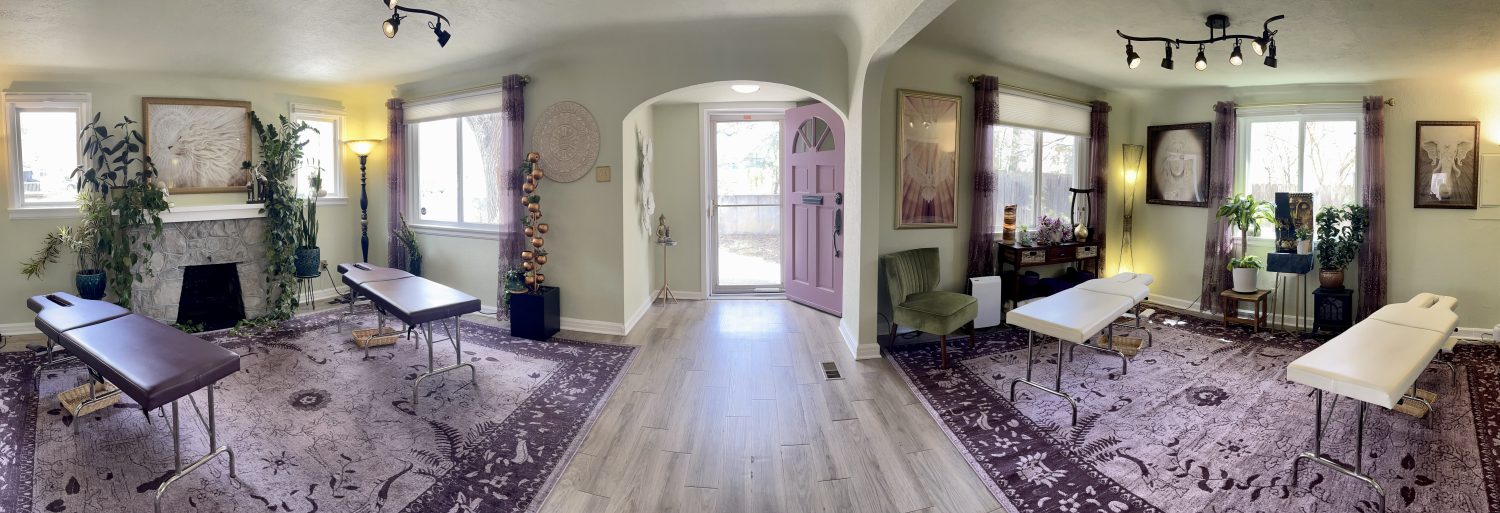Sustainable healing & living
Creating a foundation
We have all had the experience of having had a profound realization, attending a powerful workshop or retreat or making an important change and afterwards feeling on fire. You become unstoppable and everything is flowing with ease and grace. Then a few days or weeks pass by and you seem to be falling back into your old mode of living. Things feel harder and like more work again and you wonder how the heck to get back to place you had momentarily tasted.
This is extremely common. You’ve had this profound experience that allows you see yourself differently and as a result of seeing yourself differently life begins to respond differently to you. We often by default attribute the experience itself to the change we are noticing in our life, however this is an erroneous association. The experience is only a permission slip to see yourself differently. It has nothing to do with the actual experience itself. This is subtle and tricky and one of the many ways we give our power over to experience rather than owning it as ourselves.
So the question becomes how do we sustain that new perception and view of ourselves that was permissioned by the experience, realization or change. The answer is to create a foundation in ourselves.
The elements of a strong foundation
Self-knowledge & acceptance
 Creating a strong foundation is absolutely mandatory if you want to sustainably heal & live whole-heartedly. The first element of a strong foundation is knowing yourself. This means knowing your patterns and tendencies. This requires slowing down your mind and rhythm during the day, pausing at times and being curious about what is really going on. Self-knowledge equates to the statements that are said in Stage 1 of SRI. First slowing down, tuning into yourself through your body and acknowledging what you notice. Your body holds your “subconscious you” so as you tune into it you become more aware and develop greater self-knowledge about how you do you.
Creating a strong foundation is absolutely mandatory if you want to sustainably heal & live whole-heartedly. The first element of a strong foundation is knowing yourself. This means knowing your patterns and tendencies. This requires slowing down your mind and rhythm during the day, pausing at times and being curious about what is really going on. Self-knowledge equates to the statements that are said in Stage 1 of SRI. First slowing down, tuning into yourself through your body and acknowledging what you notice. Your body holds your “subconscious you” so as you tune into it you become more aware and develop greater self-knowledge about how you do you.
The second element is self-acceptance. Now we all know and have heard a million-trillion times that self-acceptance (which is self-love) is so important, yet most of us aren’t really practicing it fully. Self-acceptance means becoming authentically aware of yourself (developing that self-knowledge) and then suspending all judgment on that which you see or feel about you. For example say your ultimate goal is to have a vibrant, healthy body yet you currently are not experiencing it. Maybe instead you feel fat, or you have pain and low energy. Through self-discovery say with SRI (putting your hands on your body and paying attention) you become aware that you feel shameful for the current state that your body is in and you notice that all of the activities that you engage in to “get your body healthy” are actually ways to numb or dampen out feeling this shame. This is the #1 reason why change is not sustainable and why those people who do “all the right things” get sick. Your actions are coming from a place of avoidance instead of a place of inspiration and true desire. Until you accept yourself just the way you are all the actions you take to change what you want to change will feel like hard work, and unless you have some super solid self-discipline its unlikely you will maintain the change you want.
Now self-acceptance doesn’t mean that your state stays the same or that you don’t change. You do. More effortlessly. The paradox is that only through acceptance can you and your body heal. If you fight what is you create resistance, which creates separation, which walls off your body from its innate intelligence which is self-organizing and self-healing and from the energy you need to create sustainable change.
 So in order to integrate those aspects of yourself which you have seen anew through the experience of a workshop, retreat or realization, they must land in a foundation that will receive them. Also having the skills of self-awareness and knowledge to realize when your old patterns or tendencies are arising is crucial, so you can see where you are avoiding something you don’t want to feel or when you are moving towards what you truly desire.
So in order to integrate those aspects of yourself which you have seen anew through the experience of a workshop, retreat or realization, they must land in a foundation that will receive them. Also having the skills of self-awareness and knowledge to realize when your old patterns or tendencies are arising is crucial, so you can see where you are avoiding something you don’t want to feel or when you are moving towards what you truly desire.
Dr. Amanda Hessel, Chiropractor, Network Spinal Analysis & Somato-Respiratory Integration, Boulder, Colorado

Ooo… you’re saying something really powerful here. What is the effect of doing something good like starting a workout program if the impetus to do so is really motivated by an unconscious urge to avoid feeling shame? Probably not sustainable.